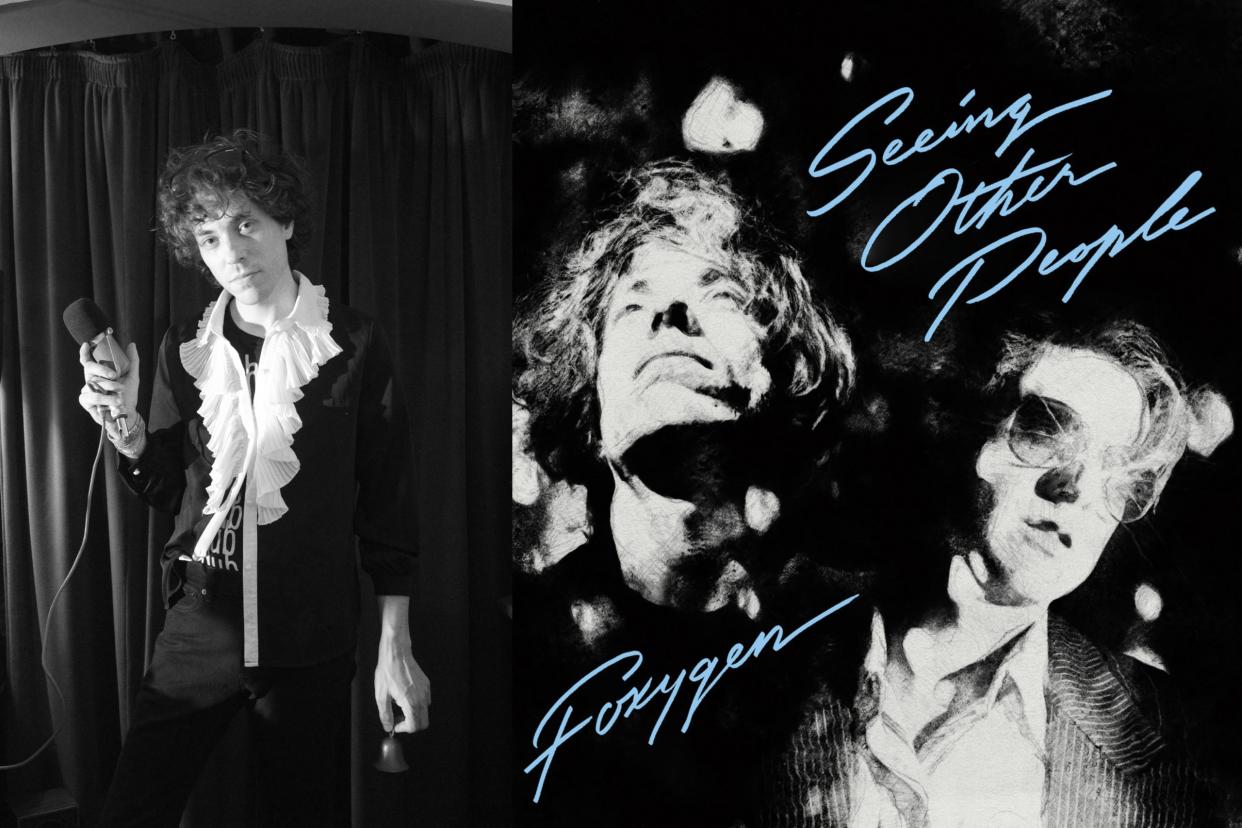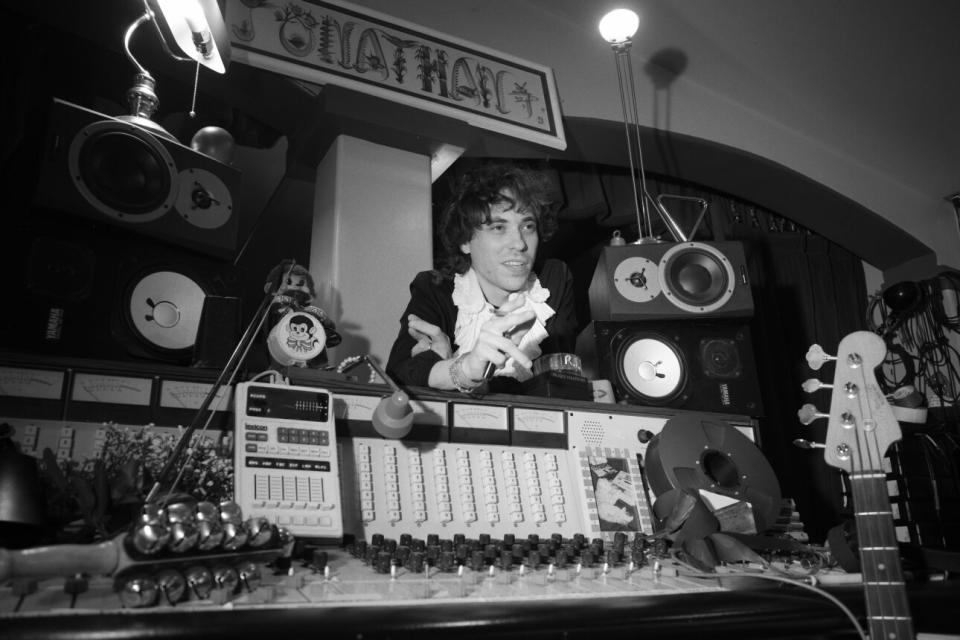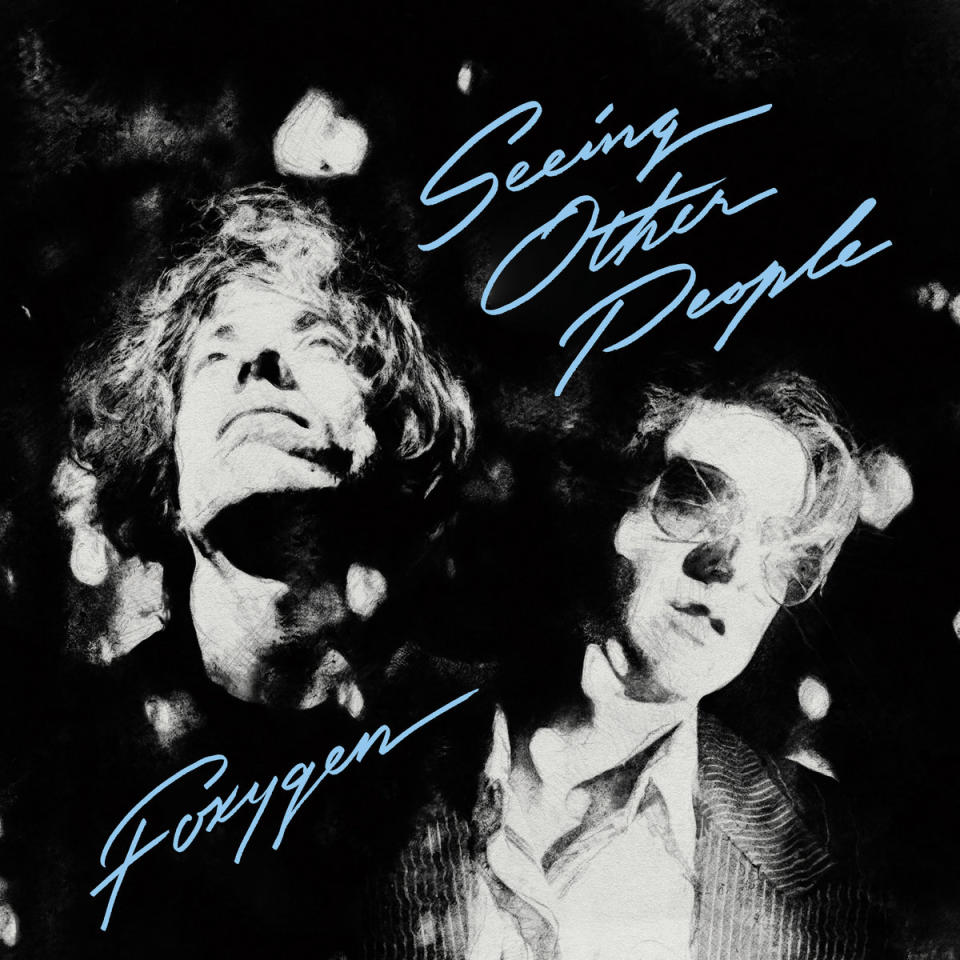Band Jury: Foxygen’s Jonathan Rado Defends…Foxygen’s Seeing Other People


Welcome to Band Jury, a SPIN series in which artists defend black sheep albums they feel deserve another listen. These are projects that, for whatever reason (middling sales, negative reviews, a misunderstood stylistic shift) have fallen slightly out of fashion — or perhaps never reached it to begin with.
The Defender: Jonathan Rado
Qualifications: one half of ever-morphing, often-experimental “recording project” Foxygen; producer for artists like Weyes Blood, Father John Misty, the Killers, and the Lemon Twigs; solo artist with three albums of adventurous indie-rock, including his latest, December’s For Who the Bell Tolls For; human who enjoys music
More from Spin:
The Lemon Twigs on Their Brotherly Balance, Unorthodox Love Songs, Elton John Praise
Emo Festival Announces Lineup Consisting Almost Entirely of Men
Review: Foxygen’s Hang Revives the Retro Simplicity of Their Best Work

The Defended: Foxygen’s 2019 LP, Seeing Other People
Overview: Mixed-to-positive critical reception, including a 68 on Metacritic; second-worst score of their widely released albums (2.82/5.0) on fan-review site RateYourMusic

Many years before Foxygen recorded their sixth LP, 2019’s Seeing Other People, they had a goofier, more conceptual title in the holster.
“When we thought of the idea, back in 2009 or 2010, it was going to be called Java City,” Jonathan Rado tells SPIN from his detached home studio, grinning somewhat mischievously and wearing a long-sleeve Enya T-shirt. “Like a coffee shop vibe, like a CD your dad would have. Over time, I realized that Steve Winwood’s Back in the High Life is what Java City was supposed to be.”
A decade later, some traces of “Higher Love” linger in Seeing Other People’s flirtations with blue-eyed-soul and funky synth-pop. But, as usual in Foxygen world, things are a bit more complicated: There are gentle nods to hip-hop, the occasionally quirky embellishments of iconic session drummer Jim Keltner, and intriguingly bizarre production that maintains the psych/art-rock spirit of fan-favorites like Take the Kids Off Broadway (2011) and We Are the 21st Century Ambassadors of Peace & Magic (2013).
As Rado notes, that musical quest—of being lighter, more accessible, more in line with the kind of songs you might encounter at a corporate coffee shop—was actually part of a loosely planned “saga” of sorts, as they molded various eras and styles to fit their own image.
“We made five albums back when we were in high school, and that was its own saga,” he says. “And Take the Kids Off Broadway through Seeing Other People is its own saga for Foxygen—we knew we wanted to make a ’60s album; we wanted to make a crazy ’70s double-album; an operatic album with an orchestra, like big Broadway [album], and then a soft-rock, early ‘80s one.”
These Java City vibes were championed here and there—a 68 on Metacritic is nothing to sneeze at—but they seemed to alienate listeners still clinging to the band’s wilder, more unhinged work.
“The genres we’re playing with, doing [more] modern stuff—there are moments on the album where [singer] Sam [France] kind of raps—are not the things people want from Foxygen,” Rado says. “They want us to wear paisley shirts and break down on stage. People don’t want a tight [album] with Jim Keltner and Foxygen doing soft-rock/rap.” But they were fully committed to the idea—you either go full High Life or you don’t go at all. “It was a crazy concept, so I was like, “We should make this as accessible [as possible] and not tongue-in-cheek,” he continues. “We should do this like Steve Winwood trying to make the No. 1 album in America, someone at the top of their game. All those records we were referencing were like the biggest records in the world.”
So…Java City. This is like the CD sold at the counter when you’re buying a latte?
Exactly. Over time, I realized that Steve Winwood’s Back in the High Life is what Java City was supposed to be. That sort of morphed over time. The idea sat around, and we always sort of knew we were gonna get there. After [2017’s] Hang, after doing so much vintage music for so long, I think we were trying to incorporate more of a hip-hop element. There is a little bit of [it in there], like on “Living a Lie.” When Sam played that for me, I was like, “That’s kind of a Drake song.” Then we sort of dressed it up in an ’80s vibe. It has a soft-rock production, but the melody and everything really reminds me of Drake.
I was thinking about low-end probably for the first time in my life. Through 21st and [2014’s …And] Star Power and Hang, there’s not a lot of focused low-end. So I think in that element, there’s a lot of bass on Seeing Other People. It feels to me much more like a hip-hop record. But I think generally the idea is coffee: Java City, Starbucks, almost like a corporate thing. I don’t know. I think that’s where the idea spurred from: an adult-contemporary album. In the process of making it, we weaved in some more modern elements. We recorded it with Shawn Everett as an engineer, and he’s one of the best engineers and mixers in the world. His capture of that album is modern for sure.
I don’t know how many people from your generation are into that stuff, but I’ve always loved Steve Winwood—that’s an all-time favorite album.
I can’t speak as much for Sam, but I think this is true. We’re now 32 years old, so we’re millennials. Millennial parents were in their 30s in the ’80s and late ’70s, so I remember a lot of major seventh chords growing up. I remember a lot of these corny inversions on piano. These things seem really corny, but they do remind me of my childhood. Those records are impeccably produced. It’s Bob Clearmountain at the top of his game. We have such respect for that time period as an art. Foxygen’s first manager always says that Steely Dan’s Gaucho is the most punk rock album of all time. I think I agree with that.
Back to Winwood, I love that you aspired to go all the way. It would have been less interesting if you’d only dabbled in the High Life.
I feel like that’s what everyone does: “Let’s do Steely Dan but make it indie! Let’s record it kinda like shit.” It was a very exciting time in music around 2011. It was Mac DeMarco, Foxygen, Tame Impala—those are three things that sound pretty different but are all playing in this soup. It’s all collage music—let’s take these things from different time periods and throw them all together.
When you first suggested Seeing Other People for Band Jury, I was a little shocked. It’s interesting to hear from the artist’s perspective on this—what they consider to be a negative reception.
I remember that Seeing Other People got a pretty mid to bad Pitchfork review [a 5.0 out of 10]. That’s just what sticks in my mind. It was a pretty negative review. I remember Seeing Other People as maybe the first one where people were kinda mid and Pitchfork was like, “Fuck it.” I don’t think anyone was like, “This is your opus.”
Foxygen morph from album to album, song to song, sometimes even during a song. So it’s interesting to think that people were put off by Seeing Other People’s more concise, hooky direction. What’s your theory on that? Do you think people were just like, “Where’s the crazy, psychedelic stuff?”
My theory, I think, is that, compared to the intense bravado and speed of the previous three records, maybe it seemed a little… It was adult! I should look back through the reviews as well because I’m not sure what people said about it. [Laughs.] I always thought it was a very, very bold album because I couldn’t think of any contemporaries to us that have made anything similar. It sounds completely unique to Foxygen and is kind of the conclusion to Arc B of the Foxygen universe. It’s a little slower in tempo, and it’s more groove-based. The songs don’t change tempo ever really—it’s pretty metronomic. Maybe those are things that people really liked about Foxygen. We never used a click [track before]. It was way more free-form on the previous three albums. I think it’s as bold! I think it’s as bold doing something as restricted as Seeing Other People. When a band tries to recreate some magic they had previously, it rarely works.
I have to ask: Jim Keltner played garbage—not poor drumming, but literal trash—on one song, right?
Yeah, on “Work”! All that [mimes tom-tom-style drum fill] is just him beating on trash that I found in the back of the studio. For the album, I got a nice ’70s drum kit, and I had a guy come in and tune it up, make it sound pristine. Jim Keltner’s people came in to load in his kit, and they just broke down that kit and set up his kit, which was a newer DW kit with two kick drums and two snare drums and a hi-hat on both sides. A bunch of toms, all his cymbals. A really wild drum kit. He’s not playing a three-piece kit. It’s his newer Jim Keltner vibe. It added to the weirdness of it.
Part of the Foxygen thing is the [improvisational principle of] “Yes and,” just going with it. Ultimately it’s going to sound like a drum kit—it’s the same shit really. But that was way more exciting. Anything Jim Keltner wanted to do, we were like, “Do it,” and we left it in. He brought in this giant wood block and was like, “Only Tom Waits lets me use it.” I was like, “You can use it on your record!” He said, “You’re gonna mute it.” I was like, “We’re not gonna mute it!” It’s in there somewhere.
You and Sam are credited on Reginald Chapman’s 2023 song “There Is This Thing,” but you haven’t released an album since Seeing Other People. I have to ask: Is that song pointing toward new music? What’s the status of Foxygen?
Reggie played trombone in the Hang touring band. We did that for him on the tour bus, just on his computer. That’s from like 2017, and he put it out [in 2023]. I love it. I think it’s sick. It’s our most recent release on Apple Music, but it’s…not quite. Seeing Other People should be the most recent. It’s confusing, and we never said anything about it, but it just adds to the mystique. I don’t know—what is the status of Foxygen? It’s kind of a wait and see. There’s some stuff that exists that we’ve made. But it’s kind of a concept band, so we’re trying to figure out what—if, how—Phase 3 would look like. That [last era] was our 20s. It’s been divided into 10-year chunks.
I respect that you’re being guided by your art.
“Never just a band”—that’s what it says on the Spotify and Apple headlines. It’s not a band. It’s a recording project. And until we have that idea for what the recording should be, it’s like, what’s the point? The other thing is that we didnt tour this album, and that’s probably good and it would have been 2020 soon anyway. But that was mainly because…it’s really hard to do that stuff. Foxygen never really had a solid [lineup]—we always had different people in the band, and it was always evolving.
We never really made money on our tours anyway because we were always paying the band and the hotel and all the stuff that goes into the tour—we always break even. We were like, “Maybe this is just an album.” Moving Foxygen back to a recording project is maybe the most healthy thing to do, [go back to] how it started. We’ve kinda come full-circle.
To see our running list of the top 100 greatest rock stars of all time, click here.
